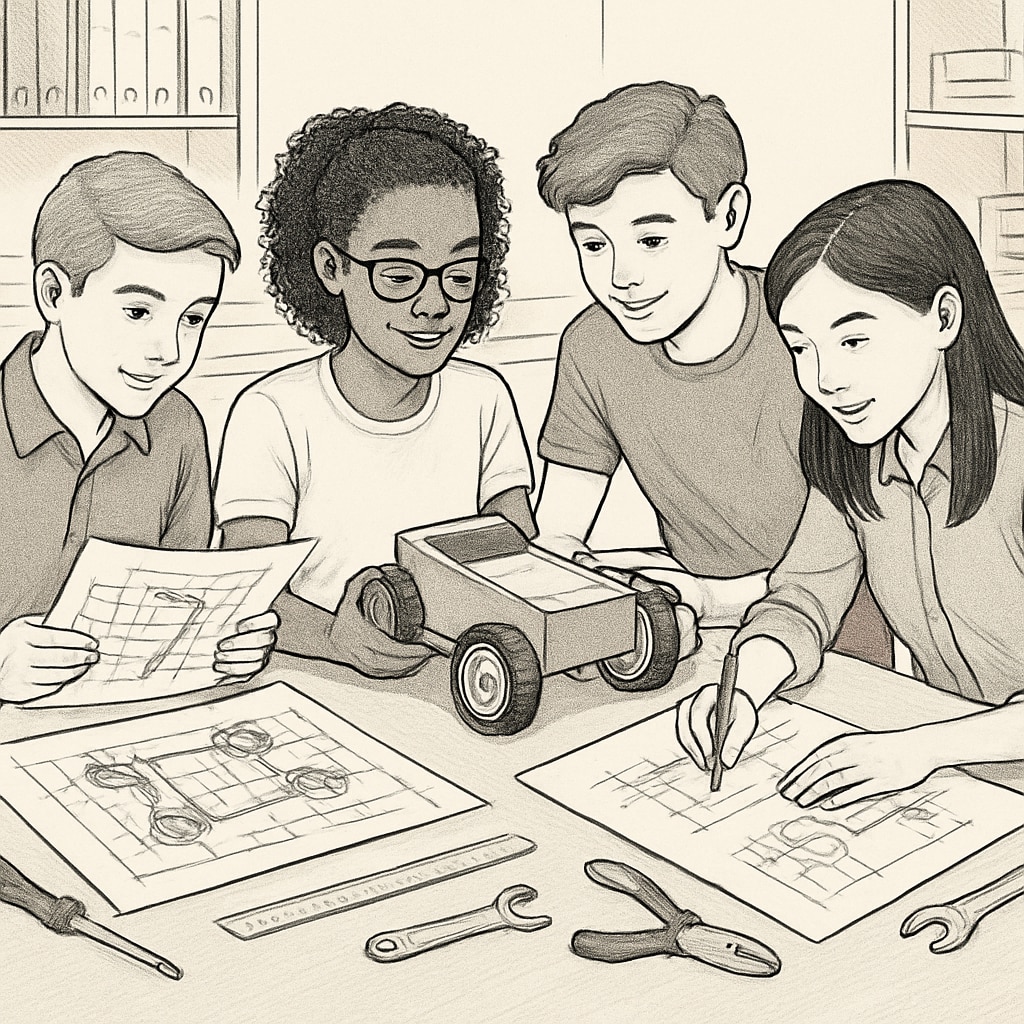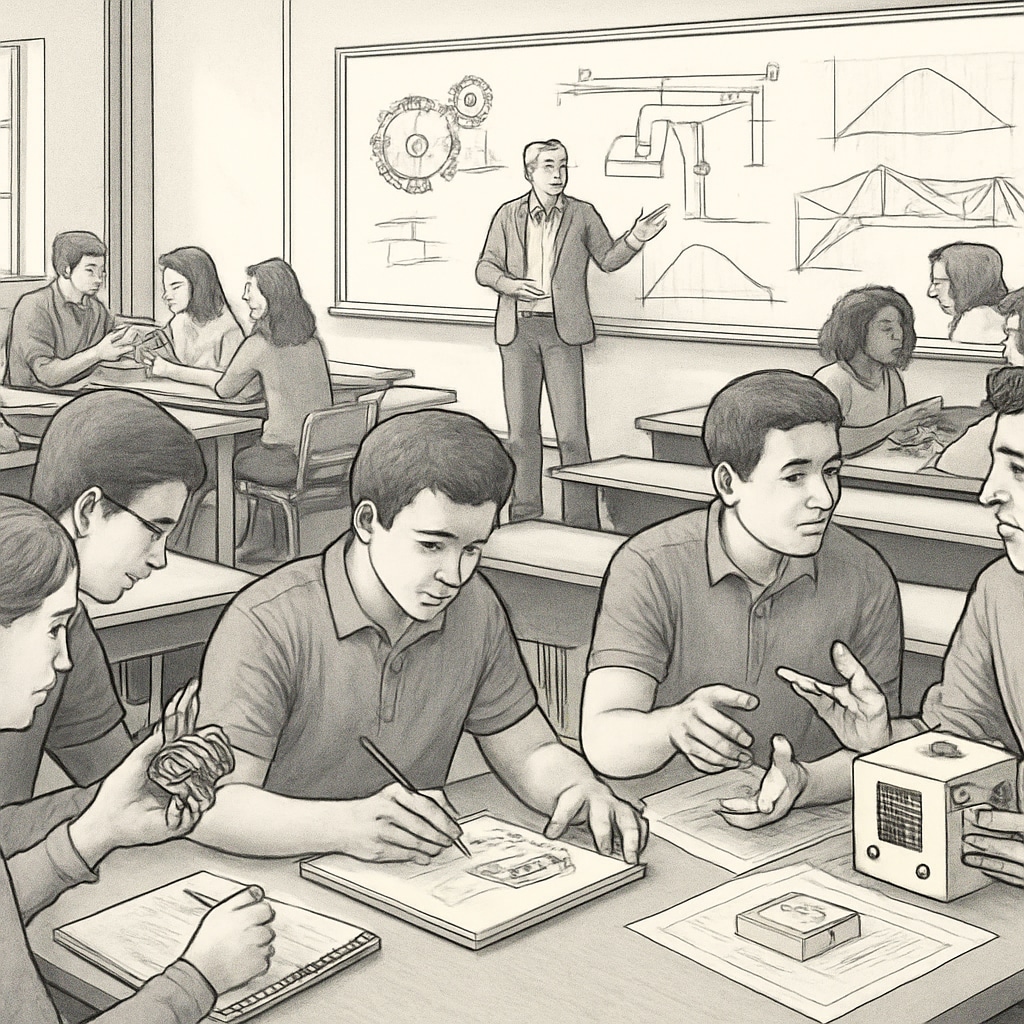Choosing between MEng (Master of Engineering) and MSc (Master of Science) degrees in design engineering can significantly impact career development pathways. Early education plays a crucial role in cultivating engineering and design thinking, forming a foundation for future academic and professional success. By integrating STEM (Science, Technology, Engineering, and Mathematics) principles into the K12 education system, educators can guide students toward creative problem-solving, technical competence, and innovation.

How K12 Education Shapes Design Engineering Thinking
Engineering design thinking is not just about technical knowledge—it involves creativity, collaboration, and critical thinking. K12 education provides an ideal platform to foster these skills. Incorporating hands-on STEM activities, such as robotics, coding, and 3D modeling, allows students to engage with real-world problems early on. These experiences prepare students for the analytical and creative demands of advanced degrees like MEng and MSc.
For example, introducing students to project-based learning (PBL) encourages teamwork and iterative problem-solving. This method mirrors the design process used in professional engineering, where prototyping and testing are integral components. As a result, students gain the confidence and skills necessary to pursue challenging academic paths.
The MEng vs MSc Decision: Key Factors to Consider
When selecting between MEng and MSc programs in design engineering, understanding their differences is critical. MEng degrees typically emphasize practical application and industry readiness, often including internships or industrial placements. MSc degrees, on the other hand, lean toward research and theoretical exploration, which can be ideal for those considering academic or research careers.
Some factors to consider include:
- Career Goals: MEng is suited for industry-focused roles, while MSc is better for research-driven careers.
- Curriculum Focus: MEng programs often include more coursework on applied engineering; MSc programs may delve deeper into specialized topics.
- Duration: MEng degrees sometimes take longer due to integrated work placements, whereas MSc programs may be shorter and more research-intensive.
Students who develop strong engineering design thinking during their K12 years are better equipped to assess these options and align them with their career aspirations. For instance, a student passionate about innovation and product development might lean toward an MEng program, while one intrigued by theoretical studies could opt for an MSc.

Career Impacts of MEng and MSc Degrees in Design Engineering
Both MEng and MSc degrees offer promising career opportunities, but their impacts differ based on industry demands and individual goals. MEng graduates often find roles in sectors like manufacturing, construction, and technology, where practical engineering skills are paramount. MSc graduates, however, may explore careers in research institutions, academia, or niche industries requiring advanced theoretical knowledge.
According to Wikipedia’s overview of engineering, the discipline’s versatility means that engineers with either degree can contribute to innovations across diverse fields. Furthermore, Britannica describes engineering as a profession that bridges scientific discovery and societal needs, highlighting the importance of both practical application and theoretical advancement.
In addition, employers often look for candidates who demonstrate a blend of technical expertise and problem-solving skills. Early exposure to design engineering in K12 education helps students cultivate these traits, making them competitive in the workforce regardless of their chosen degree.
Building the Foundation for Design Engineering Success
To ensure students are prepared for the challenges of MEng or MSc programs, K12 educators should focus on fostering curiosity and resilience. Strategies include:
- Integrating STEM activities into the curriculum to spark interest in engineering concepts.
- Encouraging students to participate in science fairs, coding challenges, or robotics clubs.
- Providing mentorship from professionals in design engineering fields to offer insights into career paths.
By laying this groundwork, students can confidently navigate their academic journey and make informed decisions about their professional futures.
Readability guidance: This article uses concise paragraphs, lists, and transitions to ensure clarity. Active voice is prioritized, and passive constructions are minimized to enhance engagement.


